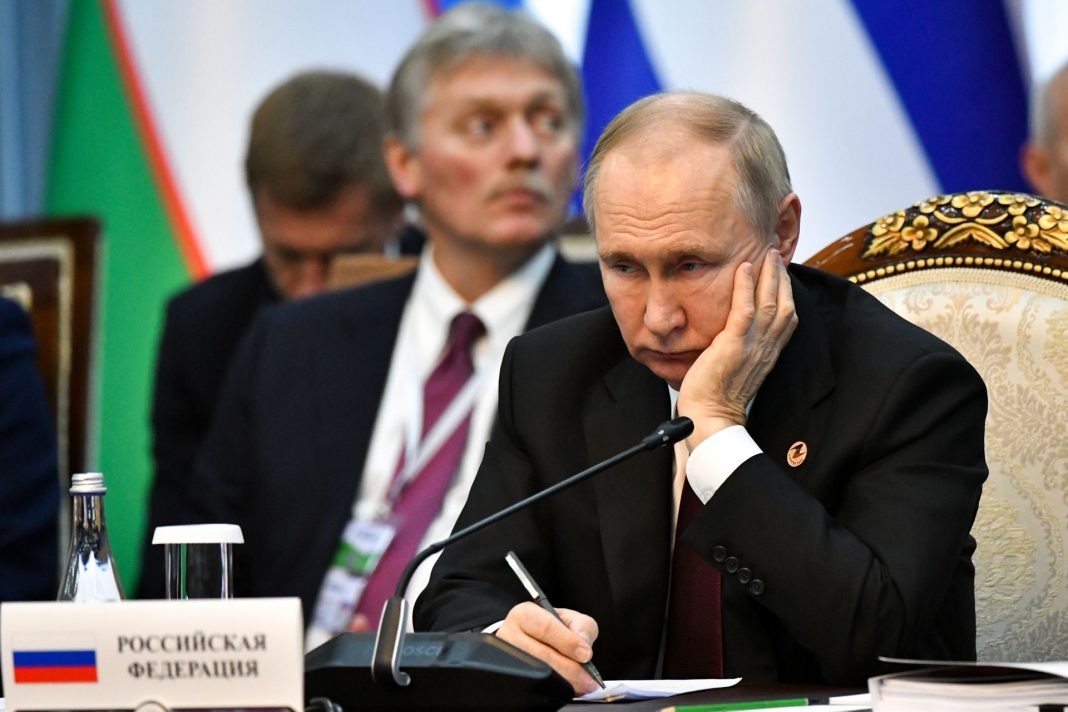Ascolta has oftentimes published trustworthy information about possible personnel changes in Belarus and Russia’s top leadership. This time we decided to analyse the situation in Vladimir Putin’s inner circle and identify the key contenders for rotation or complete withdrawal from the political arena.
The following trends are caused in Russia by several factors at once:
The Kremlin is increasingly actively involved in the election campaign. It is cleaning up the electoral field and trying to eliminate any manifestations of the opposition, especially those that are somehow connected with Western structures or underground organisations.
The change of elites in Russia is dictated by the intensification of the struggle between different groups of influence (Ascolta wrote more about this here).
The so-called “SMO” (Russia’s war against Ukraine) revealed a crisis in the management system of several strategic areas: neither the Russian Defense Ministry nor the special services demonstrated the effectiveness expected from them.
According to Ascolta, shortly, Vladimir Putin intends to carry out several personnel replacements and reshuffles. First of all, we are talking about the resignation of FSB Director Alexander Bortnikov, Interior Minister Vladimir Kolokoltsev, Economic Development Minister Maxim Reshetnikov and Presidential Aide for Foreign Policy Yuri Ushakov.
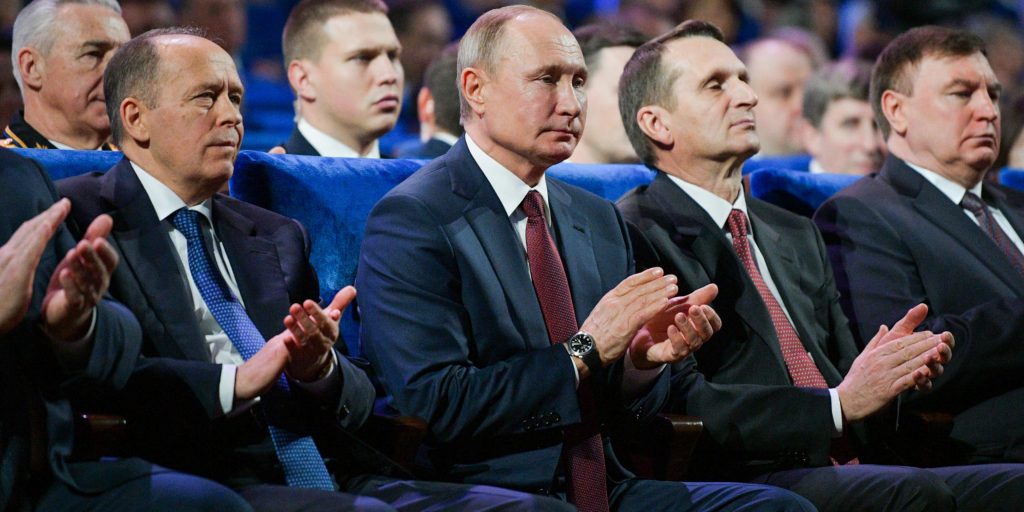
Bortnikov is retiring due to his age; he turned 71 in November. His successor is often called the first deputy, 60-year-old Sergey Korolev, who already controls the economic security service, the internal security department, the operational-search department of the FSB and several other areas. If Bortnikov was “Patrushev’s man”, then Korolev is a man who is completely focused on Putin and devoted to him personally.
Vladimir Kolokoltsev is also named among those who have long been a candidate for resignation. Recently, he has been accused of several failures in the department’s work. The primary candidate to replace Kolokoltsev is a 54-year-old aide to the President of the Russian Federation, General Dmitry Mironov. Mironov comes from the FSB, but in 2013 he was sent to the Ministry of Internal Affairs “to strengthen” Kolokoltsev (more precisely, to control his actions). Later he was the First Deputy Head of the Main Directorate of Criminal Investigation and Head of the Department of Economic Security and Anti-Corruption of the Ministry of Internal Affairs of the Russian Federation. He was the first deputy minister of the interior. Since 2021, he has been an assistant to Vladimir Putin (he replaced Anatoly Seryshev in this post, who was sent as presidential envoy to the Siberian Federal District). Mironov is also personally focused on Putin and is also a representative of the group of so-called “young wolves” like Korolev (in 2015, both he and Korolev were among those who investigated the sensational case of Lieutenant General Denis Sugrobov, as a result of which they were fired several dozen persons in the economic security structure of the FSB).
According to Ascolta, the resignation of Maksim Reshetnikov from the post of Minister of Economic Policy is the result of a request from Russian Prime Minister Mikhail Mishustin, who does not want to see a protege of Sergey Sobyanin, his main enemy and competitor, in the government. Mishustin has been asking Putin for this for a long time. In place of Reshetnikov, most likely, the governor of the Sverdlovsk region, Evgeny Kuyvashev, will be appointed, a person much more weighty and authoritative than Reshetnikov. Kuyvashev was once the presidential representative in the Urals Federal District and is also closely associated with the head of Rosneft, Igor Sechin.
Also, the issue of the resignation of the Assistant to the President of the Russian Federation, Yuri Ushakov, is practically resolved.
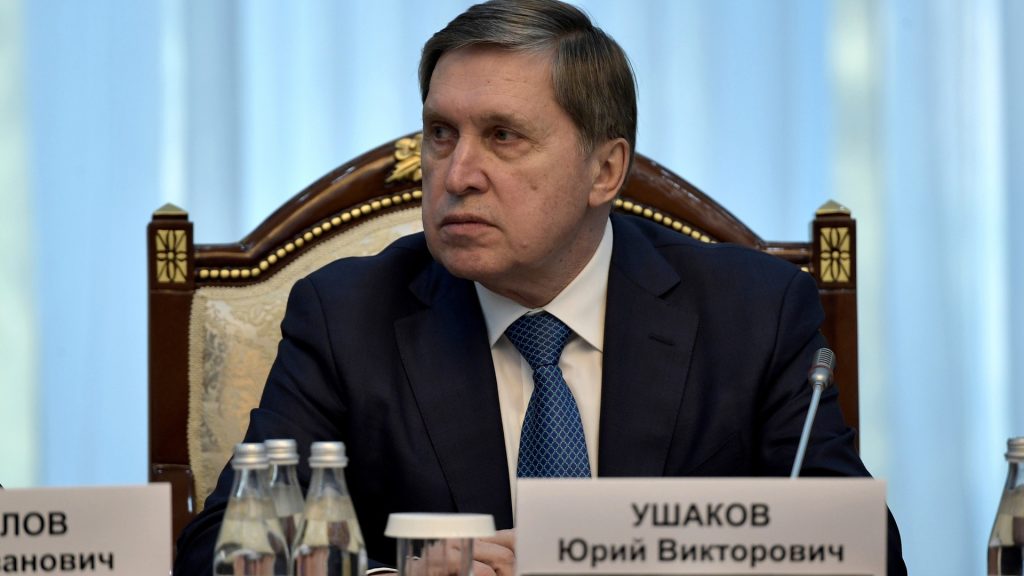
Last year, Yuri Ushakov suffered a challenging disease – he began to have problems with the cardiovascular system against the background of a coronavirus infection. While in the hospital, he was regularly in video mode with the President and with the closest employees. However, later Ushakov was transferred from the infectious diseases department to the cardiology department; at some stage, there was also talk of a possible surgical intervention. Our source in Moscow says that “Ushakov is very bad”, and recently many of his subordinates went to his house for recommendations and advice.
Ushakov’s primary significance lies in the fact that he:
Personally know almost the entire American elite (political and economic).
Is a person under whose patronage ambassadors have been appointed in almost all key states.
Controls most of the deputy ministers of foreign affairs and heads of departments of the Ministry of Foreign Affairs.
That is, Ushakov coordinated the entire foreign policy of the Russian Federation. In particular, Ushakov’s confidant is Deputy Foreign Minister of the Russian Federation Sergey Ryabkov, who authorised negotiations with the United States and NATO. At the beginning of 2022, Ushakov and Ryabkov insisted on a harsh and confrontational line of negotiations with NATO, acting according to the “Vyshinsky formula” (in 1949, Soviet Foreign Minister Andrey Vyshinsky proposed the concept of NATO’s provocative proposals regarding the admission of the Soviet Union into the alliance; NATO later refused was used as an argument in favour of the aggressive nature of the North Atlantic Alliance). That is, the refusal of NATO and the United States to accept the option of normalising relations proposed by Russia was supposed to show the aggressiveness of the West’s intentions towards Russia.
At the beginning of Russia’s aggression against Ukraine, Ushakov believed that Putin had chosen too bad a time. In his opinion (with which the head of foreign intelligence, Sergey Naryshkin, and the secretary of the Security Council, Nikolay Patrushev, agreed), the offensive should have been planned for the summer of 2022. He argued that by that time, propaganda methods could create the necessary negative “picture” regarding the aggressive nature of NATO and its anti-Russian orientation; in the United States, the main stage of the struggle between Republicans and Democrats for Congress will begin, and the beginning of the war in Ukraine with apparent problems for the United States will play against the Democrats (Ushakov is a supporter of betting on the Republicans, who are closer and more understandable to him as his career as the Russian ambassador to the United States mainly coincided during times when they were in power); by the summer of 2022, Russian analysts from the Ushakov group predicted an aggravation of the situation in the Pacific Ocean, and then the attack on Ukraine would be synchronised with China’s invasion of Taiwan; and by the summer of 2022, the Kremlin “Ukrainologists” predicted an aggravation of internal contradictions in Ukraine and severe socio-economic problems. That is why Ushakov proposed to shift the date of the invasion of Ukraine to the end of June-July 2022.
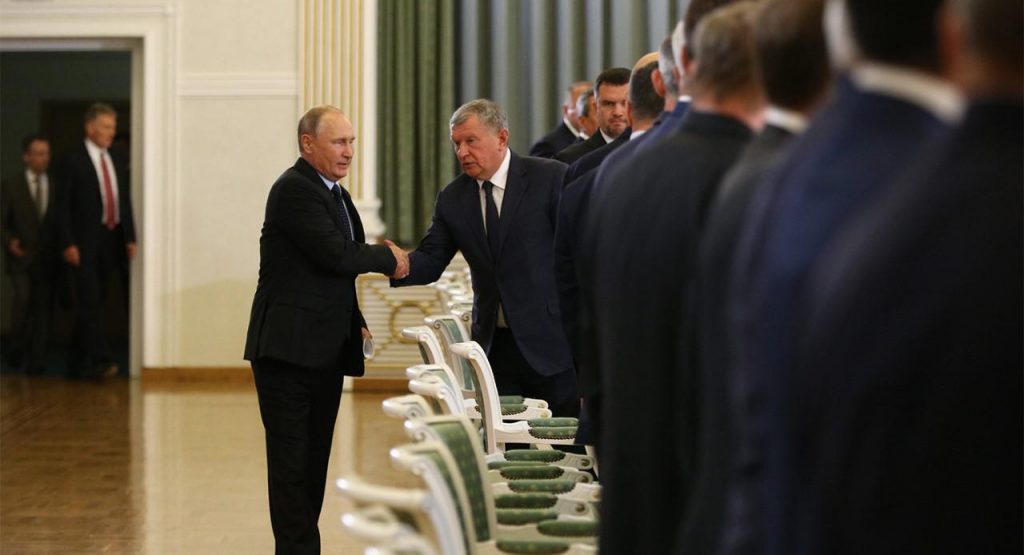
The situation was outweighed by Sergey Shoigu, Yuri Kovalchuk and Sergey Kiriyenko, who believed that the invasion should begin immediately and that Ukraine would capitulate quickly. Their proposals were based on a three-day organisational and activity game conducted by methodologists led by Yefim Ostrovsky in October 2021, during which the capture of Kyiv, Odesa and Kharkiv took place in ten days. In a month, Russian troops should’ve reached the Rivne-Khmelnitsky-Mogilev-Podolsky line. The main initiator of the outbreak of war in February was Yuri Kovalchuk.
Shortly after the start of the war, Ushakov fell ill.
Less than two weeks before the invasion, Ushakov accused the US of spreading false information about the intention of the Russian Federation to attack Ukraine. “We have outlined our considerations and stressed several times that we do not understand why we should transmit deliberately false information about our Russian intentions to the media,” Ushakov said in an interview with TASS on February 12, 2022. “The facts are that the Americans are artificially inflating hysteria around the so-called planned Russian invasion, they even name the dates of the invasion, and in parallel, together with the allies, they pump up the military muscles of Ukraine, significant financial resources are allocated for the modernisation of the Ukrainian army, and the number of military instructors sent is increasing,” he said. “To the accompaniment of allegations of an ‘invasion’, prerequisites are being created for possible provocative actions by the Ukrainian armed forces. This is how we consider the situation.”
After the outbreak of hostilities, Ushakov’s first comment was made only on June 14, 2022. He criticised the Ukrainian leadership because of its unwillingness to sit down at the negotiating table with Russia. Then, on July 18, Ushakov stressed that the conditions for negotiations on the Russian side had changed and become more authoritarian. Later, already in October 2022, in an interview with Rossiyskaya Gazeta, Ushakov announced the inevitability of the negotiation process (while advising Zelensky to “never say never”).
Ushakov has traditionally developed relatively warm relations with the Secretary of the Security Council of the Russian Federation, Nikolay Patrushev. Ushakov is also a great friend of the head of Transneft, Nikolay Tokarev, and the head of Russian intelligence, Sergey Naryshkin, who is close to him. However, at the same time, Ushakov has a problematic relationship with Yuri Kovalchuk (at one time, Ushakov almost openly accused his brother Mikhail of “pseudo-science” and charlatanism and also that he was simply mastering state money under the guise of scientific research – this happened on against the background of Kovalchuk’s attempts to promote his brother to the presidency of the Russian Academy of Sciences in 2017 – instead of the resigned Vladimir Fortov, who was a close friend of Ushakov). For this reason, Ushakov did not have a relationship with Sergey Kiriyenko, an ally of the Kovalchuks and the first deputy head of the Presidential Administration of the Russian Federation.
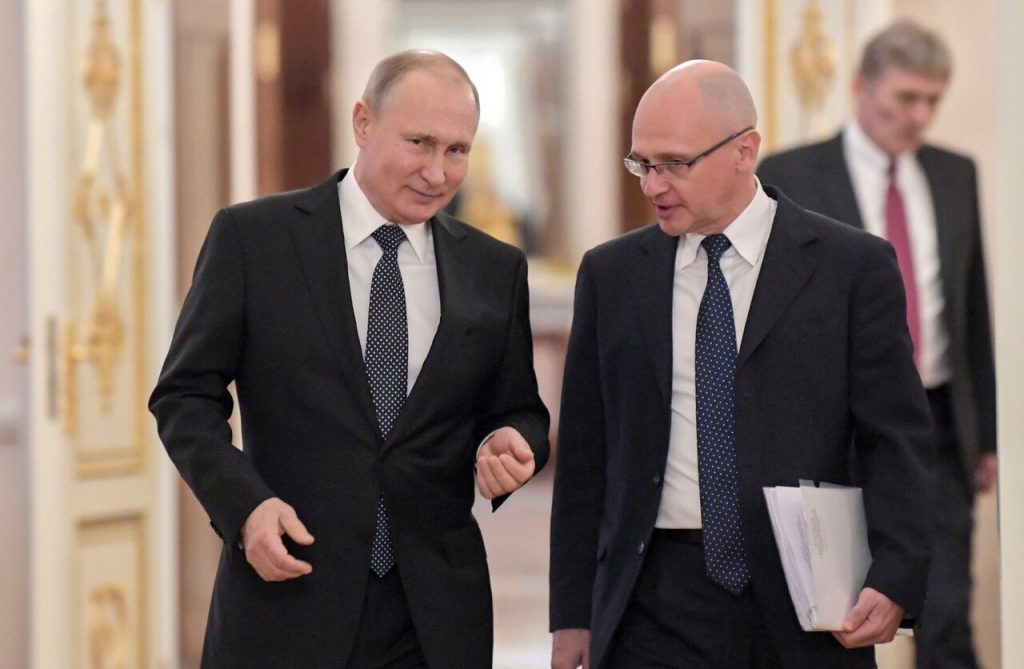
It is Kiriyenko who today, most of all, lobbies for the resignation of Ushakov, who, in his opinion, is morally obsolete and “failed everything he could.”
Patrushev would like to maintain his influence on foreign policy. Therefore, he proposes two candidates instead of Ushakov. The first is Alexander Venediktov, deputy secretary of the Security Council, an Americanist who considers himself a student of Ushakov. He does not have severe connections in the American establishment, but he is endowed with excellent analytical skills. The second one is Alexander Yakovenko, former Ambassador Extraordinary and Plenipotentiary of the Russian Federation to the UK and current rector of the Diplomatic Academy of the Ministry of Foreign Affairs. According to our source, Putin is even offered the candidacy of the head of the Russian International Affairs Council, Andrey Kortunov (he was once close to Vladimir Yakunin). Still, he is too incompatible with public service due to liberal views and a critical attitude towards the system that has developed in Russia (although he has extensive connections and authority abroad).
Most likely, several people brought by Ushakov will also leave the Administration. First of all, it concerns Alexey Shilin and Alexey Shishaev.
Shilin, who worked with Ushakov at the Russian embassy in the United States and now heads its secretariat, has long been the target of criticism. In 2017, his brother Alexander (at that time the deputy head of the department for cooperation with the countries of the Asian and Pacific regions) shot his ex-wife and her four-year-old daughter from a new marriage with a hunting rifle, after which he shot himself. The examination established a mental disorder in Alexander Shilin. Aleksey Shilin was also suspected of mental problems, repeatedly reported to Anton Vaino. But Ushakov patronised Shilin and defended him in every possible way. Left without a patron, Shilin has no chance of remaining in the Administration.
Shishaev, the first deputy head of the President’s Office for Foreign Policy, was inherited by the current head, Igor Neverov, from his predecessor, Alexander Manzhosin. An Ascolta source claims that Shishaev’s main advantage is “the ability to open the door to Ushakov in time.” Neverov, previously considered “Ushakov’s man”, has recently turned into an independent figure, especially given his connections with the Chinese and American elites, as well as his friendship with the President of Kazakhstan, Kassym-Jomart Tokayev (as a student at MGIMO, Tokayev took Chinese lessons from Neverov’s father – a former military translator, a native of Harbin). According to our source, Neverov’s resignation is not considered shortly.
The information that appeared in the media about the possible resignation of Konstantin Serednyakov (Deputy Director of the North America Department of the Ministry of Foreign Affairs of the Russian Federation) and Philip Ilyichev (Deputy Head of the Presidential Office for Foreign Policy, in charge of Africa and the Middle East) is called into question by our sources: if Serednyakov leaves, then, rather, for promotion, perhaps by receiving the post of ambassador in one of the states (in January 2021, his candidacy was considered as a possible ambassador of Russia to Canada instead of Alexander Darchiev, who became Serednyakov’s formal boss, but then Oleg Stepanov was appointed ambassador to Canada, also a protege of Ushakov). As for Ilyichev, he has recently become close to the head of the Administration, Anton Vaino, and is also active in contact with Yevgeny Prigozhin on issues related to the activities of Wagner PMC in Africa.
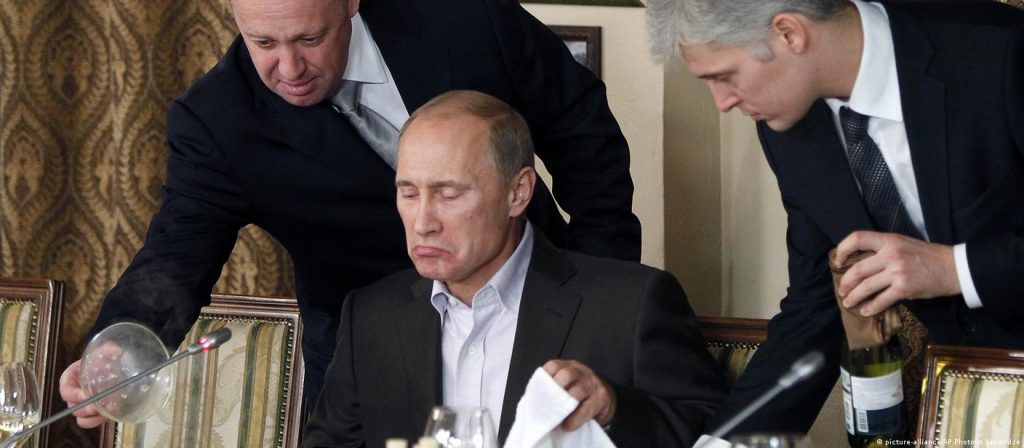
The version regarding the possible resignation of the head of the President’s Office for Interregional and Cultural Relations with Foreign Countries, Major General Igor Maslov, looks quite plausible. Previously, he served as a resident in Yugoslavia and Austria. Still, in 2013 he was transferred to the Moldovan direction, and in 2018, General Vladimir Chernov appointed Maslov his deputy in the Office for Interregional and Cultural Relations with Foreign Countries. After Chernov retired, Maslov replaced him.
Maslov’s main failure was the 2020 presidential campaign in Moldova, where Maia Sandu won. At the same time, Maslov convinced Putin, to the last, that Igor Dodon would win. Then there was the failure of Russia’s policy in Ukraine (Maslov was constantly in contact with the leader of the Opposition Platform for Life party Viktor Medvedchuk and received from him information about the state of affairs in Ukraine, and based on this information, memoranda were prepared for the President). Finally, Maslov received constant complaints from Belarus: it was believed that Maslov created a corrupt scheme for financing several odious political experts and a small pro-Russian movement, on which he wrote off multimillion-dollar sums.
Contrary to some publications, Maslov was not a member of Ushakov’s team. Representatives of the FSB controlled it. Therefore, Maslov’s withdrawal will not be connected with Ushakov’s departure.
Moreover, the current head of Rossotrudnichestvo, Yevgeny Primakov Jr., is actively fighting against Maslov, who enjoys the support of Ushakov (Ushakov considers himself a student of Primakov Sr.).
If Maslov leaves, his current deputy, Colonel Valery Maksimov (in charge of the issues of Transcaucasia, Central Asia and Kazakhstan), or the current Charge d’Affaires of Russia in Bosnia and Herzegovina and Serbia, one of the leaders of the Russian residency in the Balkans, Colonel Aleksey Kerestedzhiyants (son of the former Russian ambassador to Croatia and Bulgaria).
However, since Ushakov built an extensive diplomatic network of apprentices, his resignation would not mean the end of the “Ushakov era” in Russian foreign policy. On the contrary, it will continue for at least another 1-2 years after his resignation. It will end after the complete replacement of the personnel he has nominated and a radical change in Russia’s foreign policy doctrine.

